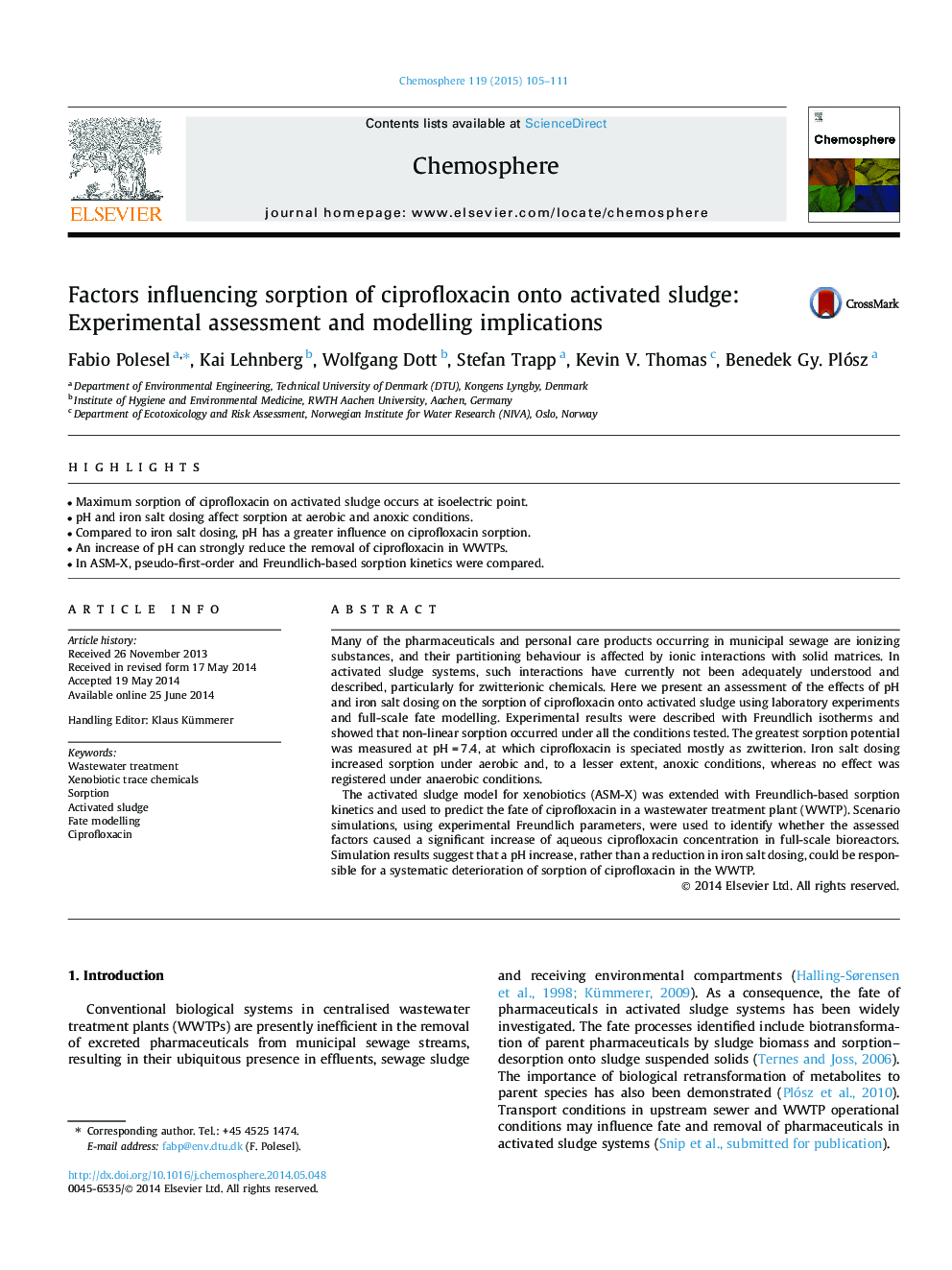| Article ID | Journal | Published Year | Pages | File Type |
|---|---|---|---|---|
| 4408609 | Chemosphere | 2015 | 7 Pages |
•Maximum sorption of ciprofloxacin on activated sludge occurs at isoelectric point.•pH and iron salt dosing affect sorption at aerobic and anoxic conditions.•Compared to iron salt dosing, pH has a greater influence on ciprofloxacin sorption.•An increase of pH can strongly reduce the removal of ciprofloxacin in WWTPs.•In ASM-X, pseudo-first-order and Freundlich-based sorption kinetics were compared.
Many of the pharmaceuticals and personal care products occurring in municipal sewage are ionizing substances, and their partitioning behaviour is affected by ionic interactions with solid matrices. In activated sludge systems, such interactions have currently not been adequately understood and described, particularly for zwitterionic chemicals. Here we present an assessment of the effects of pH and iron salt dosing on the sorption of ciprofloxacin onto activated sludge using laboratory experiments and full-scale fate modelling. Experimental results were described with Freundlich isotherms and showed that non-linear sorption occurred under all the conditions tested. The greatest sorption potential was measured at pH = 7.4, at which ciprofloxacin is speciated mostly as zwitterion. Iron salt dosing increased sorption under aerobic and, to a lesser extent, anoxic conditions, whereas no effect was registered under anaerobic conditions.The activated sludge model for xenobiotics (ASM-X) was extended with Freundlich-based sorption kinetics and used to predict the fate of ciprofloxacin in a wastewater treatment plant (WWTP). Scenario simulations, using experimental Freundlich parameters, were used to identify whether the assessed factors caused a significant increase of aqueous ciprofloxacin concentration in full-scale bioreactors. Simulation results suggest that a pH increase, rather than a reduction in iron salt dosing, could be responsible for a systematic deterioration of sorption of ciprofloxacin in the WWTP.
